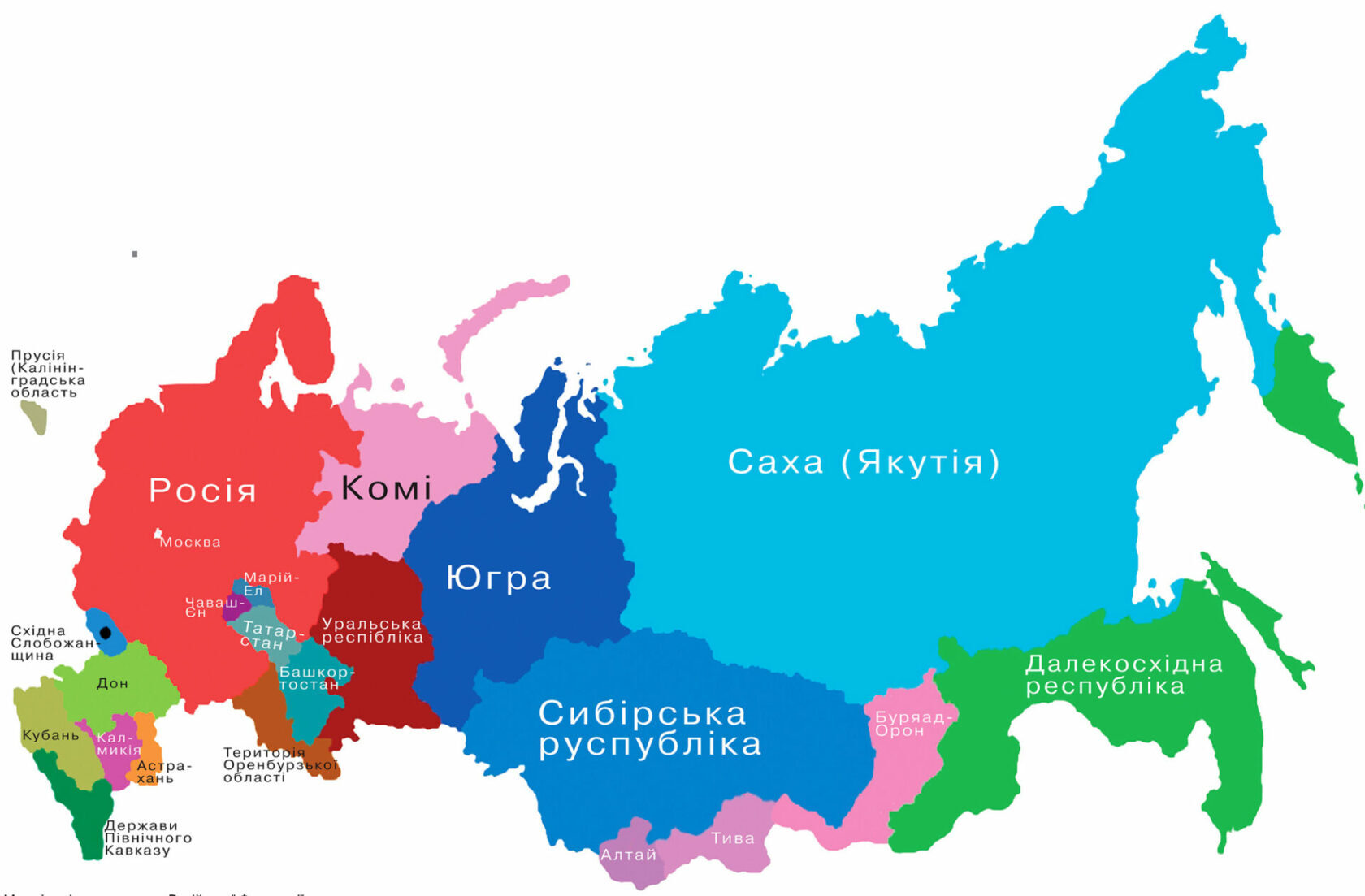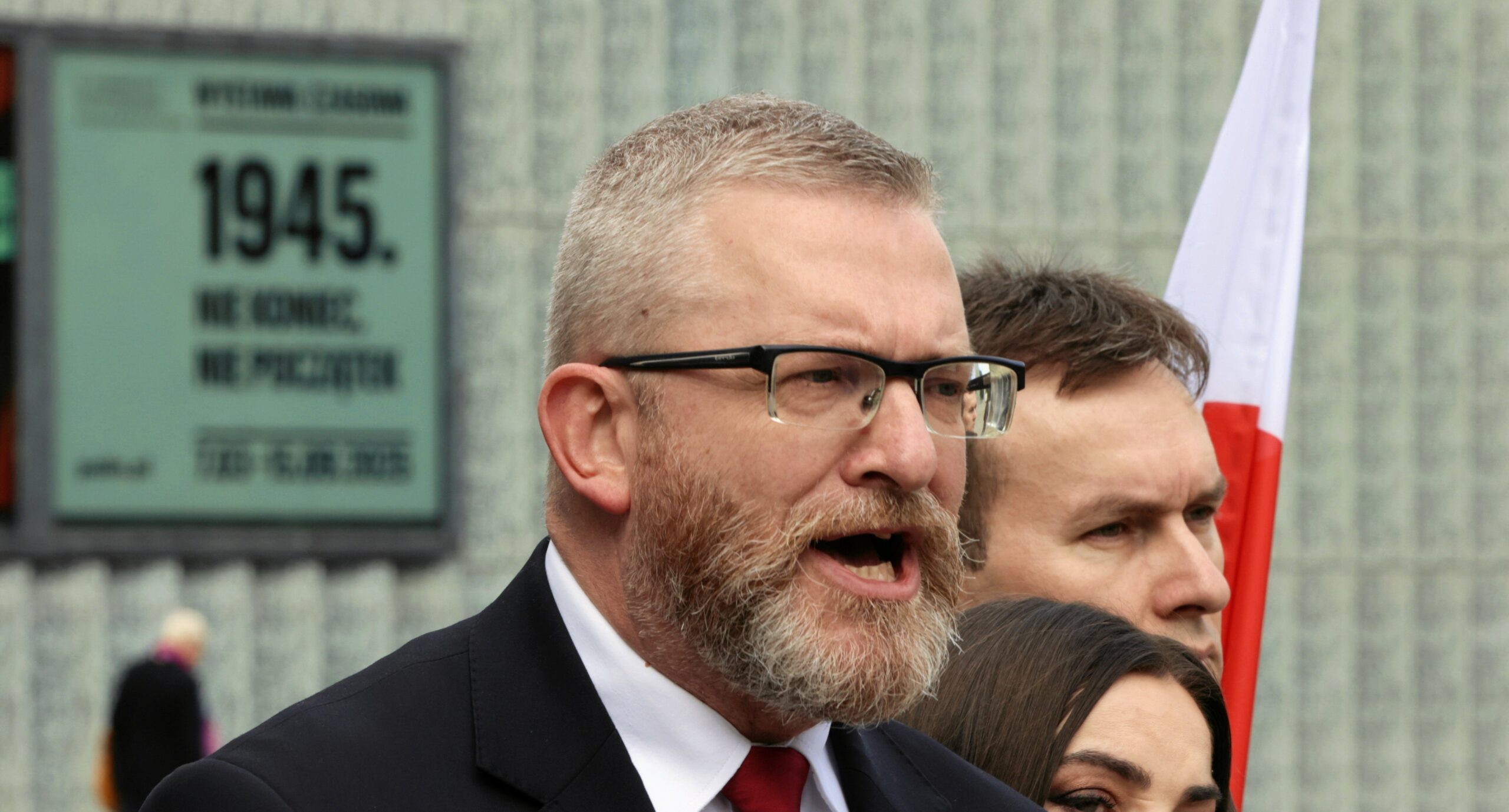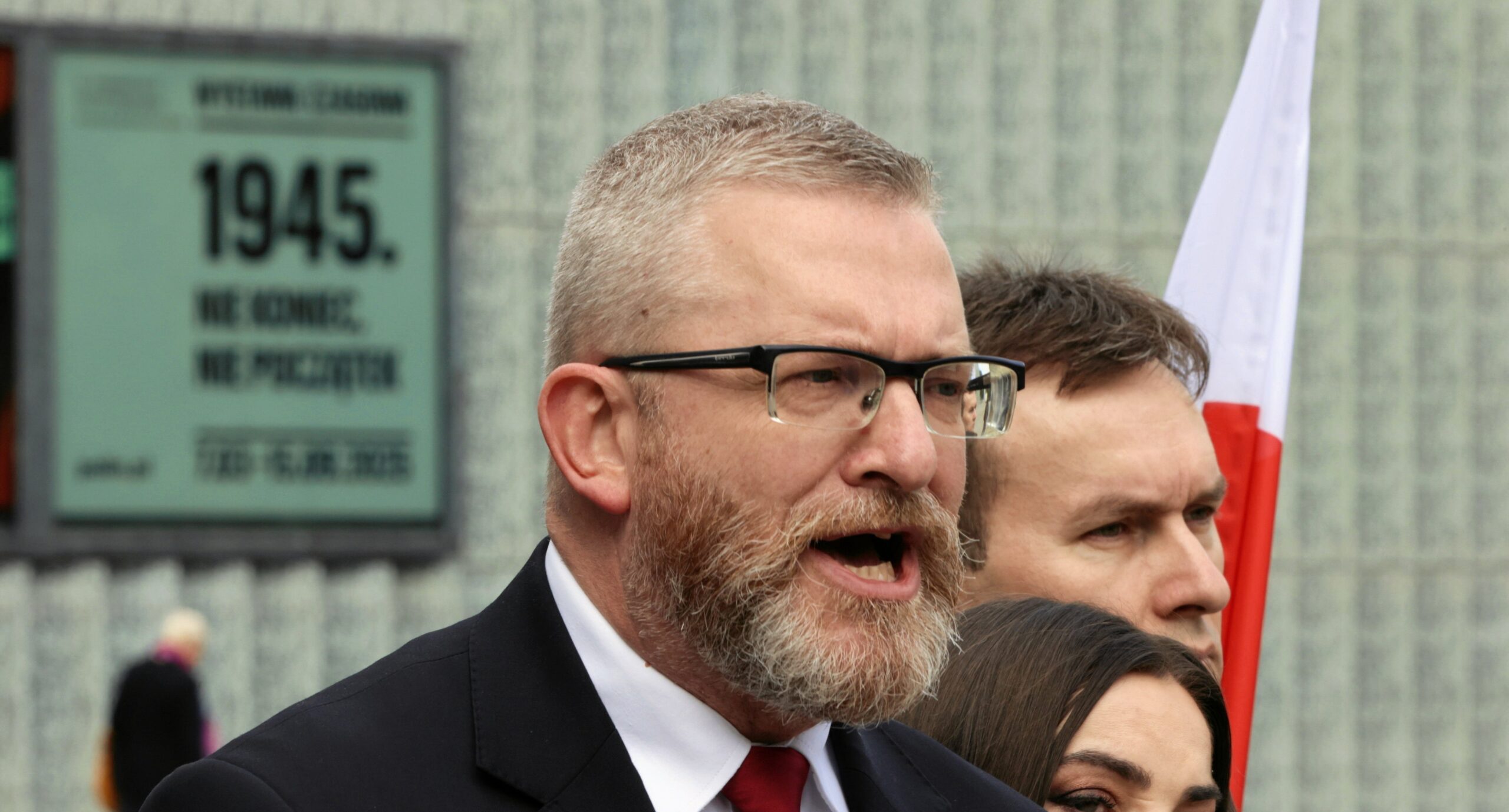- 1.23K Posts
- 220 Comments
Przypadek podobny do Ace Attorney.
Rzeczywistość imituje sztukę.

 1·4 months ago
1·4 months ago…this is crumbs.

 5·4 months ago
5·4 months agoNoted for next time.
Nie przypominam sobie.

 171·4 months ago
171·4 months agoHonestly at this point calling it the United Snake is an apt name.

 2·4 months ago
2·4 months agoHaven’t Iran been publicly developing nukes though?
Not that an attack on Iran will do any good.

 12·4 months ago
12·4 months agoBeen doing the same thing on Reddit before and I don’t quite recall people calling it spam.
If Lemmy does consider that spam though, I’ll stop. It’s just I like when more than a dozen people see what I post.

 1·5 months ago
1·5 months agoPolish media outlets supportive of Poland’s national-conservative opposition Law and Justice (PiS) party have published a recording of a private phone call involving Prime Minister Donald Tusk when he was president of the European Council.
They say it shows how he was continuing to interfere in Polish politics – and speaking in a dismissive and vulgar way about certain parts of Poland – while holding his supposedly neutral EU position.
But commentators and legal experts, as well as figures from Poland’s current ruling camp, say that the conversation reveals nothing of interest and that the real issue is how it was recorded and came to light. They believe it was produced as part of illegal surveillance conducted under PiS using Pegasus spyware.
On Friday and Saturday, right-wing broadcasters wPolsce24 and Republika released audio from two phone conversations involving Roman Giertych, who is currently an MP elected on the list of Tusk’s centrist Civic Coalition (KO). One was with Paweł Graś, Tusk’s current chief of staff, and the other with Tusk himself.
Though the recordings are undated, their content makes clear that they were made in the lead-up to the October 2019 Polish parliamentary elections, when KO was in opposition and Tusk was head of the European Council.
During the majority of his conversation with Tusk, which lasts around 16 minutes, Giertych – who at the time worked as a lawyer, including for Tusk and his children – was complaining about the then-leader of KO, Grzegorz Schetyna.
Giertych expressed frustration that Schetyna was blocking his attempts to become an election candidate for KO, saying that Schetyna was trying to suggest that Giertych stand in districts where he would have little chance of winning.
Here, Giertych described the places being suggested by Schetyna (eastern Wielkopolska province and the city of Radom) as “shits” (using the English word), at which point Tusk expressed agreement that they were places “where the fuck-ups are” (“gdzie zjeby są”).
When publishing the material, Republika noted that, at the time, “Tusk was the president of the European Council and, according to EU law, he should not interfere in domestic political disputes. And yet the tapes show something completely different”.
In response to the release of the recordings, Giertych issued a statement in which he said that they were made “as part of an illegal operation conducted against me by the CBA [Central Anticorruption Bureau]” using Pegasus spyware purchased by the PiS government.
PiS has been accused of illegally buying Pegasus and then using it to spy on opponents of its government, including Giertych and Krzysztof Brejza, who was the head of KO’s election campaign in 2019. Extracts of recordings made using Pegasus were then leaked to PiS-friendly media.
“Recording conversations between a lawyer and his clients, not destroying them, taking copies of the conversations from the CBA, passing them on to the media and publishing these conversations are very serious crimes,” wrote Giertych. “Those guilty of all these crimes will be punished.”
Legally, the CBA is supposed to destroy surveillance recordings that do not contain evidence of any crime. Giertych has not been charged with any crime in relation to the content of the recordings.
Przemysław Rosati, the president of Poland’s Supreme Bar Council, says that the newly released recordings “confirm that Pegasus was used for surveillance without a legal basis and unrelated to state security”.
“Monitoring a lawyer’s telephone is an action that directly violates attorney-client privilege and…is simply an abuse of power,” he added.
Foreign minister Radosław Sikorski also commented on social media, writing that he “hopes the media will not get excited about tidbits [contained in the recordings] but will help identify the criminals who recorded and distributed conversations between a lawyer and client”.
Tusk himself has not yet commented on the recordings.
Since replacing PiS in power in December 2023, Tusk’s ruling coalition has launched a number of investigations into the use of Pegasus by the former government.
Last year, prosecutor general Adam Bodnar revealed that almost 600 people in Poland were targeted for surveillance with Pegasus between 2017 and 2022. The interior minister, Tomasz Siemoniak, said that this had included “too many cases” when it was used “against inconvenient politicians, lawyers, judges and prosecutors”.
Subsequently, a former PiS deputy justice minister, Michał Woś was charged with abusing his powers for the alleged illegal transfer of justice ministry funds to finance the purchase of Pegasus in 2017. He denies the allegations.
In February this year, the head of the CBA, Agnieszka Kwiatkowska-Gurdak, resigned from her position after refusing to answer questions during an appearance before a parliamentary commission investigating the use of Pegasus spyware.

 1·5 months ago
1·5 months agoPolish media outlets supportive of Poland’s national-conservative opposition Law and Justice (PiS) party have published a recording of a private phone call involving Prime Minister Donald Tusk when he was president of the European Council.
They say it shows how he was continuing to interfere in Polish politics – and speaking in a dismissive and vulgar way about certain parts of Poland – while holding his supposedly neutral EU position.
But commentators and legal experts, as well as figures from Poland’s current ruling camp, say that the conversation reveals nothing of interest and that the real issue is how it was recorded and came to light. They believe it was produced as part of illegal surveillance conducted under PiS using Pegasus spyware.
On Friday and Saturday, right-wing broadcasters wPolsce24 and Republika released audio from two phone conversations involving Roman Giertych, who is currently an MP elected on the list of Tusk’s centrist Civic Coalition (KO). One was with Paweł Graś, Tusk’s current chief of staff, and the other with Tusk himself.
Though the recordings are undated, their content makes clear that they were made in the lead-up to the October 2019 Polish parliamentary elections, when KO was in opposition and Tusk was head of the European Council.
During the majority of his conversation with Tusk, which lasts around 16 minutes, Giertych – who at the time worked as a lawyer, including for Tusk and his children – was complaining about the then-leader of KO, Grzegorz Schetyna.
Giertych expressed frustration that Schetyna was blocking his attempts to become an election candidate for KO, saying that Schetyna was trying to suggest that Giertych stand in districts where he would have little chance of winning.
Here, Giertych described the places being suggested by Schetyna (eastern Wielkopolska province and the city of Radom) as “shits” (using the English word), at which point Tusk expressed agreement that they were places “where the fuck-ups are” (“gdzie zjeby są”).
When publishing the material, Republika noted that, at the time, “Tusk was the president of the European Council and, according to EU law, he should not interfere in domestic political disputes. And yet the tapes show something completely different”.
In response to the release of the recordings, Giertych issued a statement in which he said that they were made “as part of an illegal operation conducted against me by the CBA [Central Anticorruption Bureau]” using Pegasus spyware purchased by the PiS government.
PiS has been accused of illegally buying Pegasus and then using it to spy on opponents of its government, including Giertych and Krzysztof Brejza, who was the head of KO’s election campaign in 2019. Extracts of recordings made using Pegasus were then leaked to PiS-friendly media.
“Recording conversations between a lawyer and his clients, not destroying them, taking copies of the conversations from the CBA, passing them on to the media and publishing these conversations are very serious crimes,” wrote Giertych. “Those guilty of all these crimes will be punished.”
Legally, the CBA is supposed to destroy surveillance recordings that do not contain evidence of any crime. Giertych has not been charged with any crime in relation to the content of the recordings.
Przemysław Rosati, the president of Poland’s Supreme Bar Council, says that the newly released recordings “confirm that Pegasus was used for surveillance without a legal basis and unrelated to state security”.
“Monitoring a lawyer’s telephone is an action that directly violates attorney-client privilege and…is simply an abuse of power,” he added.
Foreign minister Radosław Sikorski also commented on social media, writing that he “hopes the media will not get excited about tidbits [contained in the recordings] but will help identify the criminals who recorded and distributed conversations between a lawyer and client”.
Tusk himself has not yet commented on the recordings.
Since replacing PiS in power in December 2023, Tusk’s ruling coalition has launched a number of investigations into the use of Pegasus by the former government.
Last year, prosecutor general Adam Bodnar revealed that almost 600 people in Poland were targeted for surveillance with Pegasus between 2017 and 2022. The interior minister, Tomasz Siemoniak, said that this had included “too many cases” when it was used “against inconvenient politicians, lawyers, judges and prosecutors”.
Subsequently, a former PiS deputy justice minister, Michał Woś was charged with abusing his powers for the alleged illegal transfer of justice ministry funds to finance the purchase of Pegasus in 2017. He denies the allegations.
In February this year, the head of the CBA, Agnieszka Kwiatkowska-Gurdak, resigned from her position after refusing to answer questions during an appearance before a parliamentary commission investigating the use of Pegasus spyware.

 1·5 months ago
1·5 months agoPolish media outlets supportive of Poland’s national-conservative opposition Law and Justice (PiS) party have published a recording of a private phone call involving Prime Minister Donald Tusk when he was president of the European Council.
They say it shows how he was continuing to interfere in Polish politics – and speaking in a dismissive and vulgar way about certain parts of Poland – while holding his supposedly neutral EU position.
But commentators and legal experts, as well as figures from Poland’s current ruling camp, say that the conversation reveals nothing of interest and that the real issue is how it was recorded and came to light. They believe it was produced as part of illegal surveillance conducted under PiS using Pegasus spyware.
On Friday and Saturday, right-wing broadcasters wPolsce24 and Republika released audio from two phone conversations involving Roman Giertych, who is currently an MP elected on the list of Tusk’s centrist Civic Coalition (KO). One was with Paweł Graś, Tusk’s current chief of staff, and the other with Tusk himself.
Though the recordings are undated, their content makes clear that they were made in the lead-up to the October 2019 Polish parliamentary elections, when KO was in opposition and Tusk was head of the European Council.
During the majority of his conversation with Tusk, which lasts around 16 minutes, Giertych – who at the time worked as a lawyer, including for Tusk and his children – was complaining about the then-leader of KO, Grzegorz Schetyna.
Giertych expressed frustration that Schetyna was blocking his attempts to become an election candidate for KO, saying that Schetyna was trying to suggest that Giertych stand in districts where he would have little chance of winning.
Here, Giertych described the places being suggested by Schetyna (eastern Wielkopolska province and the city of Radom) as “shits” (using the English word), at which point Tusk expressed agreement that they were places “where the fuck-ups are” (“gdzie zjeby są”).
When publishing the material, Republika noted that, at the time, “Tusk was the president of the European Council and, according to EU law, he should not interfere in domestic political disputes. And yet the tapes show something completely different”.
In response to the release of the recordings, Giertych issued a statement in which he said that they were made “as part of an illegal operation conducted against me by the CBA [Central Anticorruption Bureau]” using Pegasus spyware purchased by the PiS government.
PiS has been accused of illegally buying Pegasus and then using it to spy on opponents of its government, including Giertych and Krzysztof Brejza, who was the head of KO’s election campaign in 2019. Extracts of recordings made using Pegasus were then leaked to PiS-friendly media.
“Recording conversations between a lawyer and his clients, not destroying them, taking copies of the conversations from the CBA, passing them on to the media and publishing these conversations are very serious crimes,” wrote Giertych. “Those guilty of all these crimes will be punished.”
Legally, the CBA is supposed to destroy surveillance recordings that do not contain evidence of any crime. Giertych has not been charged with any crime in relation to the content of the recordings.
Przemysław Rosati, the president of Poland’s Supreme Bar Council, says that the newly released recordings “confirm that Pegasus was used for surveillance without a legal basis and unrelated to state security”.
“Monitoring a lawyer’s telephone is an action that directly violates attorney-client privilege and…is simply an abuse of power,” he added.
Foreign minister Radosław Sikorski also commented on social media, writing that he “hopes the media will not get excited about tidbits [contained in the recordings] but will help identify the criminals who recorded and distributed conversations between a lawyer and client”.
Tusk himself has not yet commented on the recordings.
Since replacing PiS in power in December 2023, Tusk’s ruling coalition has launched a number of investigations into the use of Pegasus by the former government.
Last year, prosecutor general Adam Bodnar revealed that almost 600 people in Poland were targeted for surveillance with Pegasus between 2017 and 2022. The interior minister, Tomasz Siemoniak, said that this had included “too many cases” when it was used “against inconvenient politicians, lawyers, judges and prosecutors”.
Subsequently, a former PiS deputy justice minister, Michał Woś was charged with abusing his powers for the alleged illegal transfer of justice ministry funds to finance the purchase of Pegasus in 2017. He denies the allegations.
In February this year, the head of the CBA, Agnieszka Kwiatkowska-Gurdak, resigned from her position after refusing to answer questions during an appearance before a parliamentary commission investigating the use of Pegasus spyware.

 1·5 months ago
1·5 months agoPolish media outlets supportive of Poland’s national-conservative opposition Law and Justice (PiS) party have published a recording of a private phone call involving Prime Minister Donald Tusk when he was president of the European Council.
They say it shows how he was continuing to interfere in Polish politics – and speaking in a dismissive and vulgar way about certain parts of Poland – while holding his supposedly neutral EU position.
But commentators and legal experts, as well as figures from Poland’s current ruling camp, say that the conversation reveals nothing of interest and that the real issue is how it was recorded and came to light. They believe it was produced as part of illegal surveillance conducted under PiS using Pegasus spyware.
On Friday and Saturday, right-wing broadcasters wPolsce24 and Republika released audio from two phone conversations involving Roman Giertych, who is currently an MP elected on the list of Tusk’s centrist Civic Coalition (KO). One was with Paweł Graś, Tusk’s current chief of staff, and the other with Tusk himself.
Though the recordings are undated, their content makes clear that they were made in the lead-up to the October 2019 Polish parliamentary elections, when KO was in opposition and Tusk was head of the European Council.
During the majority of his conversation with Tusk, which lasts around 16 minutes, Giertych – who at the time worked as a lawyer, including for Tusk and his children – was complaining about the then-leader of KO, Grzegorz Schetyna.
Giertych expressed frustration that Schetyna was blocking his attempts to become an election candidate for KO, saying that Schetyna was trying to suggest that Giertych stand in districts where he would have little chance of winning.
Here, Giertych described the places being suggested by Schetyna (eastern Wielkopolska province and the city of Radom) as “shits” (using the English word), at which point Tusk expressed agreement that they were places “where the fuck-ups are” (“gdzie zjeby są”).
When publishing the material, Republika noted that, at the time, “Tusk was the president of the European Council and, according to EU law, he should not interfere in domestic political disputes. And yet the tapes show something completely different”.
In response to the release of the recordings, Giertych issued a statement in which he said that they were made “as part of an illegal operation conducted against me by the CBA [Central Anticorruption Bureau]” using Pegasus spyware purchased by the PiS government.
PiS has been accused of illegally buying Pegasus and then using it to spy on opponents of its government, including Giertych and Krzysztof Brejza, who was the head of KO’s election campaign in 2019. Extracts of recordings made using Pegasus were then leaked to PiS-friendly media.
“Recording conversations between a lawyer and his clients, not destroying them, taking copies of the conversations from the CBA, passing them on to the media and publishing these conversations are very serious crimes,” wrote Giertych. “Those guilty of all these crimes will be punished.”
Legally, the CBA is supposed to destroy surveillance recordings that do not contain evidence of any crime. Giertych has not been charged with any crime in relation to the content of the recordings.
Przemysław Rosati, the president of Poland’s Supreme Bar Council, says that the newly released recordings “confirm that Pegasus was used for surveillance without a legal basis and unrelated to state security”.
“Monitoring a lawyer’s telephone is an action that directly violates attorney-client privilege and…is simply an abuse of power,” he added.
Foreign minister Radosław Sikorski also commented on social media, writing that he “hopes the media will not get excited about tidbits [contained in the recordings] but will help identify the criminals who recorded and distributed conversations between a lawyer and client”.
Tusk himself has not yet commented on the recordings.
Since replacing PiS in power in December 2023, Tusk’s ruling coalition has launched a number of investigations into the use of Pegasus by the former government.
Last year, prosecutor general Adam Bodnar revealed that almost 600 people in Poland were targeted for surveillance with Pegasus between 2017 and 2022. The interior minister, Tomasz Siemoniak, said that this had included “too many cases” when it was used “against inconvenient politicians, lawyers, judges and prosecutors”.
Subsequently, a former PiS deputy justice minister, Michał Woś was charged with abusing his powers for the alleged illegal transfer of justice ministry funds to finance the purchase of Pegasus in 2017. He denies the allegations.
In February this year, the head of the CBA, Agnieszka Kwiatkowska-Gurdak, resigned from her position after refusing to answer questions during an appearance before a parliamentary commission investigating the use of Pegasus spyware.

 1·5 months ago
1·5 months agoPolish media outlets supportive of Poland’s national-conservative opposition Law and Justice (PiS) party have published a recording of a private phone call involving Prime Minister Donald Tusk when he was president of the European Council.
They say it shows how he was continuing to interfere in Polish politics – and speaking in a dismissive and vulgar way about certain parts of Poland – while holding his supposedly neutral EU position.
But commentators and legal experts, as well as figures from Poland’s current ruling camp, say that the conversation reveals nothing of interest and that the real issue is how it was recorded and came to light. They believe it was produced as part of illegal surveillance conducted under PiS using Pegasus spyware.
On Friday and Saturday, right-wing broadcasters wPolsce24 and Republika released audio from two phone conversations involving Roman Giertych, who is currently an MP elected on the list of Tusk’s centrist Civic Coalition (KO). One was with Paweł Graś, Tusk’s current chief of staff, and the other with Tusk himself.
Though the recordings are undated, their content makes clear that they were made in the lead-up to the October 2019 Polish parliamentary elections, when KO was in opposition and Tusk was head of the European Council.
During the majority of his conversation with Tusk, which lasts around 16 minutes, Giertych – who at the time worked as a lawyer, including for Tusk and his children – was complaining about the then-leader of KO, Grzegorz Schetyna.
Giertych expressed frustration that Schetyna was blocking his attempts to become an election candidate for KO, saying that Schetyna was trying to suggest that Giertych stand in districts where he would have little chance of winning.
Here, Giertych described the places being suggested by Schetyna (eastern Wielkopolska province and the city of Radom) as “shits” (using the English word), at which point Tusk expressed agreement that they were places “where the fuck-ups are” (“gdzie zjeby są”).
When publishing the material, Republika noted that, at the time, “Tusk was the president of the European Council and, according to EU law, he should not interfere in domestic political disputes. And yet the tapes show something completely different”.
In response to the release of the recordings, Giertych issued a statement in which he said that they were made “as part of an illegal operation conducted against me by the CBA [Central Anticorruption Bureau]” using Pegasus spyware purchased by the PiS government.
PiS has been accused of illegally buying Pegasus and then using it to spy on opponents of its government, including Giertych and Krzysztof Brejza, who was the head of KO’s election campaign in 2019. Extracts of recordings made using Pegasus were then leaked to PiS-friendly media.
“Recording conversations between a lawyer and his clients, not destroying them, taking copies of the conversations from the CBA, passing them on to the media and publishing these conversations are very serious crimes,” wrote Giertych. “Those guilty of all these crimes will be punished.”
Legally, the CBA is supposed to destroy surveillance recordings that do not contain evidence of any crime. Giertych has not been charged with any crime in relation to the content of the recordings.
Przemysław Rosati, the president of Poland’s Supreme Bar Council, says that the newly released recordings “confirm that Pegasus was used for surveillance without a legal basis and unrelated to state security”.
“Monitoring a lawyer’s telephone is an action that directly violates attorney-client privilege and…is simply an abuse of power,” he added.
Foreign minister Radosław Sikorski also commented on social media, writing that he “hopes the media will not get excited about tidbits [contained in the recordings] but will help identify the criminals who recorded and distributed conversations between a lawyer and client”.
Tusk himself has not yet commented on the recordings.
Since replacing PiS in power in December 2023, Tusk’s ruling coalition has launched a number of investigations into the use of Pegasus by the former government.
Last year, prosecutor general Adam Bodnar revealed that almost 600 people in Poland were targeted for surveillance with Pegasus between 2017 and 2022. The interior minister, Tomasz Siemoniak, said that this had included “too many cases” when it was used “against inconvenient politicians, lawyers, judges and prosecutors”.
Subsequently, a former PiS deputy justice minister, Michał Woś was charged with abusing his powers for the alleged illegal transfer of justice ministry funds to finance the purchase of Pegasus in 2017. He denies the allegations.
In February this year, the head of the CBA, Agnieszka Kwiatkowska-Gurdak, resigned from her position after refusing to answer questions during an appearance before a parliamentary commission investigating the use of Pegasus spyware.

 1·5 months ago
1·5 months agoPolish media outlets supportive of Poland’s national-conservative opposition Law and Justice (PiS) party have published a recording of a private phone call involving Prime Minister Donald Tusk when he was president of the European Council.
They say it shows how he was continuing to interfere in Polish politics – and speaking in a dismissive and vulgar way about certain parts of Poland – while holding his supposedly neutral EU position.
But commentators and legal experts, as well as figures from Poland’s current ruling camp, say that the conversation reveals nothing of interest and that the real issue is how it was recorded and came to light. They believe it was produced as part of illegal surveillance conducted under PiS using Pegasus spyware.
On Friday and Saturday, right-wing broadcasters wPolsce24 and Republika released audio from two phone conversations involving Roman Giertych, who is currently an MP elected on the list of Tusk’s centrist Civic Coalition (KO). One was with Paweł Graś, Tusk’s current chief of staff, and the other with Tusk himself.
Though the recordings are undated, their content makes clear that they were made in the lead-up to the October 2019 Polish parliamentary elections, when KO was in opposition and Tusk was head of the European Council.
During the majority of his conversation with Tusk, which lasts around 16 minutes, Giertych – who at the time worked as a lawyer, including for Tusk and his children – was complaining about the then-leader of KO, Grzegorz Schetyna.
Giertych expressed frustration that Schetyna was blocking his attempts to become an election candidate for KO, saying that Schetyna was trying to suggest that Giertych stand in districts where he would have little chance of winning.
Here, Giertych described the places being suggested by Schetyna (eastern Wielkopolska province and the city of Radom) as “shits” (using the English word), at which point Tusk expressed agreement that they were places “where the fuck-ups are” (“gdzie zjeby są”).
When publishing the material, Republika noted that, at the time, “Tusk was the president of the European Council and, according to EU law, he should not interfere in domestic political disputes. And yet the tapes show something completely different”.
In response to the release of the recordings, Giertych issued a statement in which he said that they were made “as part of an illegal operation conducted against me by the CBA [Central Anticorruption Bureau]” using Pegasus spyware purchased by the PiS government.
PiS has been accused of illegally buying Pegasus and then using it to spy on opponents of its government, including Giertych and Krzysztof Brejza, who was the head of KO’s election campaign in 2019. Extracts of recordings made using Pegasus were then leaked to PiS-friendly media.
“Recording conversations between a lawyer and his clients, not destroying them, taking copies of the conversations from the CBA, passing them on to the media and publishing these conversations are very serious crimes,” wrote Giertych. “Those guilty of all these crimes will be punished.”
Legally, the CBA is supposed to destroy surveillance recordings that do not contain evidence of any crime. Giertych has not been charged with any crime in relation to the content of the recordings.
Przemysław Rosati, the president of Poland’s Supreme Bar Council, says that the newly released recordings “confirm that Pegasus was used for surveillance without a legal basis and unrelated to state security”.
“Monitoring a lawyer’s telephone is an action that directly violates attorney-client privilege and…is simply an abuse of power,” he added.
Foreign minister Radosław Sikorski also commented on social media, writing that he “hopes the media will not get excited about tidbits [contained in the recordings] but will help identify the criminals who recorded and distributed conversations between a lawyer and client”.
Tusk himself has not yet commented on the recordings.
Since replacing PiS in power in December 2023, Tusk’s ruling coalition has launched a number of investigations into the use of Pegasus by the former government.
Last year, prosecutor general Adam Bodnar revealed that almost 600 people in Poland were targeted for surveillance with Pegasus between 2017 and 2022. The interior minister, Tomasz Siemoniak, said that this had included “too many cases” when it was used “against inconvenient politicians, lawyers, judges and prosecutors”.
Subsequently, a former PiS deputy justice minister, Michał Woś was charged with abusing his powers for the alleged illegal transfer of justice ministry funds to finance the purchase of Pegasus in 2017. He denies the allegations.
In February this year, the head of the CBA, Agnieszka Kwiatkowska-Gurdak, resigned from her position after refusing to answer questions during an appearance before a parliamentary commission investigating the use of Pegasus spyware.

 1·5 months ago
1·5 months agoPolish media outlets supportive of Poland’s national-conservative opposition Law and Justice (PiS) party have published a recording of a private phone call involving Prime Minister Donald Tusk when he was president of the European Council.
They say it shows how he was continuing to interfere in Polish politics – and speaking in a dismissive and vulgar way about certain parts of Poland – while holding his supposedly neutral EU position.
But commentators and legal experts, as well as figures from Poland’s current ruling camp, say that the conversation reveals nothing of interest and that the real issue is how it was recorded and came to light. They believe it was produced as part of illegal surveillance conducted under PiS using Pegasus spyware.
On Friday and Saturday, right-wing broadcasters wPolsce24 and Republika released audio from two phone conversations involving Roman Giertych, who is currently an MP elected on the list of Tusk’s centrist Civic Coalition (KO). One was with Paweł Graś, Tusk’s current chief of staff, and the other with Tusk himself.
Though the recordings are undated, their content makes clear that they were made in the lead-up to the October 2019 Polish parliamentary elections, when KO was in opposition and Tusk was head of the European Council.
During the majority of his conversation with Tusk, which lasts around 16 minutes, Giertych – who at the time worked as a lawyer, including for Tusk and his children – was complaining about the then-leader of KO, Grzegorz Schetyna.
Giertych expressed frustration that Schetyna was blocking his attempts to become an election candidate for KO, saying that Schetyna was trying to suggest that Giertych stand in districts where he would have little chance of winning.
Here, Giertych described the places being suggested by Schetyna (eastern Wielkopolska province and the city of Radom) as “shits” (using the English word), at which point Tusk expressed agreement that they were places “where the fuck-ups are” (“gdzie zjeby są”).
When publishing the material, Republika noted that, at the time, “Tusk was the president of the European Council and, according to EU law, he should not interfere in domestic political disputes. And yet the tapes show something completely different”.
In response to the release of the recordings, Giertych issued a statement in which he said that they were made “as part of an illegal operation conducted against me by the CBA [Central Anticorruption Bureau]” using Pegasus spyware purchased by the PiS government.
PiS has been accused of illegally buying Pegasus and then using it to spy on opponents of its government, including Giertych and Krzysztof Brejza, who was the head of KO’s election campaign in 2019. Extracts of recordings made using Pegasus were then leaked to PiS-friendly media.
“Recording conversations between a lawyer and his clients, not destroying them, taking copies of the conversations from the CBA, passing them on to the media and publishing these conversations are very serious crimes,” wrote Giertych. “Those guilty of all these crimes will be punished.”
Legally, the CBA is supposed to destroy surveillance recordings that do not contain evidence of any crime. Giertych has not been charged with any crime in relation to the content of the recordings.
Przemysław Rosati, the president of Poland’s Supreme Bar Council, says that the newly released recordings “confirm that Pegasus was used for surveillance without a legal basis and unrelated to state security”.
“Monitoring a lawyer’s telephone is an action that directly violates attorney-client privilege and…is simply an abuse of power,” he added.
Foreign minister Radosław Sikorski also commented on social media, writing that he “hopes the media will not get excited about tidbits [contained in the recordings] but will help identify the criminals who recorded and distributed conversations between a lawyer and client”.
Tusk himself has not yet commented on the recordings.
Since replacing PiS in power in December 2023, Tusk’s ruling coalition has launched a number of investigations into the use of Pegasus by the former government.
Last year, prosecutor general Adam Bodnar revealed that almost 600 people in Poland were targeted for surveillance with Pegasus between 2017 and 2022. The interior minister, Tomasz Siemoniak, said that this had included “too many cases” when it was used “against inconvenient politicians, lawyers, judges and prosecutors”.
Subsequently, a former PiS deputy justice minister, Michał Woś was charged with abusing his powers for the alleged illegal transfer of justice ministry funds to finance the purchase of Pegasus in 2017. He denies the allegations.
In February this year, the head of the CBA, Agnieszka Kwiatkowska-Gurdak, resigned from her position after refusing to answer questions during an appearance before a parliamentary commission investigating the use of Pegasus spyware.

 2·5 months ago
2·5 months agoPolish media outlets supportive of Poland’s national-conservative opposition Law and Justice (PiS) party have published a recording of a private phone call involving Prime Minister Donald Tusk when he was president of the European Council.
They say it shows how he was continuing to interfere in Polish politics – and speaking in a dismissive and vulgar way about certain parts of Poland – while holding his supposedly neutral EU position.
But commentators and legal experts, as well as figures from Poland’s current ruling camp, say that the conversation reveals nothing of interest and that the real issue is how it was recorded and came to light. They believe it was produced as part of illegal surveillance conducted under PiS using Pegasus spyware.
On Friday and Saturday, right-wing broadcasters wPolsce24 and Republika released audio from two phone conversations involving Roman Giertych, who is currently an MP elected on the list of Tusk’s centrist Civic Coalition (KO). One was with Paweł Graś, Tusk’s current chief of staff, and the other with Tusk himself.
Though the recordings are undated, their content makes clear that they were made in the lead-up to the October 2019 Polish parliamentary elections, when KO was in opposition and Tusk was head of the European Council.
During the majority of his conversation with Tusk, which lasts around 16 minutes, Giertych – who at the time worked as a lawyer, including for Tusk and his children – was complaining about the then-leader of KO, Grzegorz Schetyna.
Giertych expressed frustration that Schetyna was blocking his attempts to become an election candidate for KO, saying that Schetyna was trying to suggest that Giertych stand in districts where he would have little chance of winning.
Here, Giertych described the places being suggested by Schetyna (eastern Wielkopolska province and the city of Radom) as “shits” (using the English word), at which point Tusk expressed agreement that they were places “where the fuck-ups are” (“gdzie zjeby są”).
When publishing the material, Republika noted that, at the time, “Tusk was the president of the European Council and, according to EU law, he should not interfere in domestic political disputes. And yet the tapes show something completely different”.
In response to the release of the recordings, Giertych issued a statement in which he said that they were made “as part of an illegal operation conducted against me by the CBA [Central Anticorruption Bureau]” using Pegasus spyware purchased by the PiS government.
PiS has been accused of illegally buying Pegasus and then using it to spy on opponents of its government, including Giertych and Krzysztof Brejza, who was the head of KO’s election campaign in 2019. Extracts of recordings made using Pegasus were then leaked to PiS-friendly media.
“Recording conversations between a lawyer and his clients, not destroying them, taking copies of the conversations from the CBA, passing them on to the media and publishing these conversations are very serious crimes,” wrote Giertych. “Those guilty of all these crimes will be punished.”
Legally, the CBA is supposed to destroy surveillance recordings that do not contain evidence of any crime. Giertych has not been charged with any crime in relation to the content of the recordings.
Przemysław Rosati, the president of Poland’s Supreme Bar Council, says that the newly released recordings “confirm that Pegasus was used for surveillance without a legal basis and unrelated to state security”.
“Monitoring a lawyer’s telephone is an action that directly violates attorney-client privilege and…is simply an abuse of power,” he added.
Foreign minister Radosław Sikorski also commented on social media, writing that he “hopes the media will not get excited about tidbits [contained in the recordings] but will help identify the criminals who recorded and distributed conversations between a lawyer and client”.
Tusk himself has not yet commented on the recordings.
Since replacing PiS in power in December 2023, Tusk’s ruling coalition has launched a number of investigations into the use of Pegasus by the former government.
Last year, prosecutor general Adam Bodnar revealed that almost 600 people in Poland were targeted for surveillance with Pegasus between 2017 and 2022. The interior minister, Tomasz Siemoniak, said that this had included “too many cases” when it was used “against inconvenient politicians, lawyers, judges and prosecutors”.
Subsequently, a former PiS deputy justice minister, Michał Woś was charged with abusing his powers for the alleged illegal transfer of justice ministry funds to finance the purchase of Pegasus in 2017. He denies the allegations.
In February this year, the head of the CBA, Agnieszka Kwiatkowska-Gurdak, resigned from her position after refusing to answer questions during an appearance before a parliamentary commission investigating the use of Pegasus spyware.

 1·5 months ago
1·5 months agoAkurat w parlamentarnych KO zdobycie niezdecydowanych się udało. To że potem KO nie starało się nic robić w rządzie po tym to już sprawa Tuska i reszty.
Sikorski imo byłby nawet dobrym kandydatem. Na pewno lepszym niż Trzaskowski.
Wbrew prawicowości Klubu Jagiellońskiego, oni ogółem za nic nie obwiniają partię Razem. Tylko raz zrobili nieudaną przepowiednię że rozłam partii Razem wyjdzie źle dla Razem i dobrze dla Tuska, ale ogółem mało kto przewidywał że byłoby inaczej.
Rozmawiali o samej partii Razem też tam: https://klubjagiellonski.pl/2025/04/01/jan-spiewak-konfederacja-nie-jest-partia-buntu-slawomir-mentzen-to-czysty-mainstream/ https://klubjagiellonski.pl/2025/02/14/liderka-razem-poparcie-dla-konfederacji-to-efekt-naszych-zaniedban/ https://klubjagiellonski.pl/2023/10/17/razemki-kontra-dziadersi-czyli-konflikt-pokolen-w-nowej-lewicy/ https://klubjagiellonski.pl/2023/05/16/jaki-mentzen-i-partia-razem-przyszlosc-to-spor-polski-suwerennej-i-polski-nowoczesnej/

 1·5 months ago
1·5 months agoThing is the TK is not an institution supported by the current government. Its judges were illegally appointed by PiS (the previous government) and now only serve to politically posture.

















Szkoda też że nie chce mu się tworzyć serwisów RSS